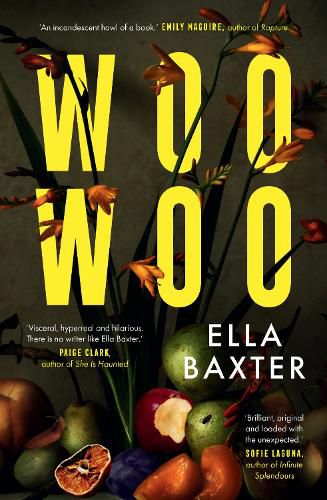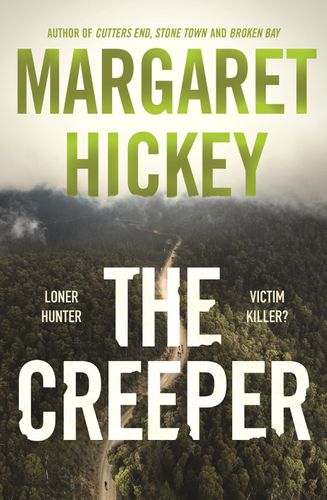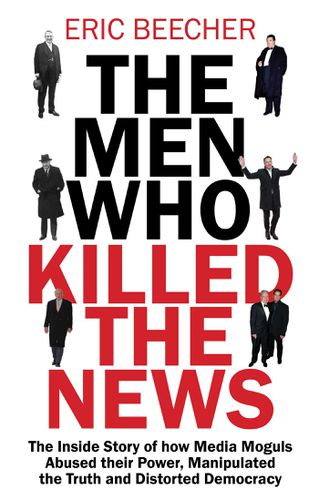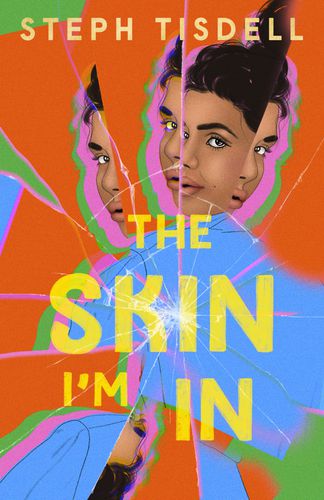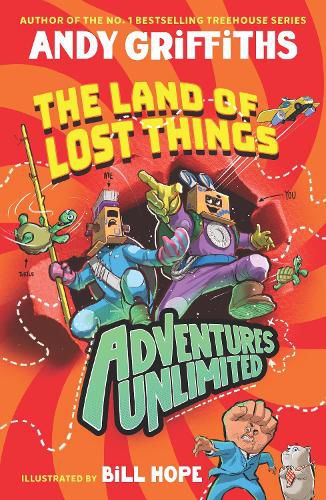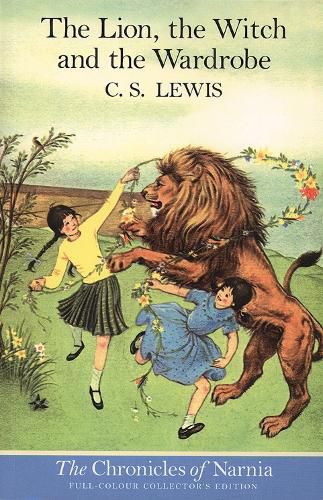Explore our books of the month for August.
Each of the below titles has been read and recommended by our booksellers before being selected as our book of the month for its category.
FICTION BOOK OF THE MONTH
Woo Woo by Ella Baxter
Reviewed by Alison Huber, head book buyer for Readings
'... this book is so well-written, you can give yourself over to the words, and engage fully with Baxter’s original thinking, and feel the feelings she is exploring.'
Melbourne writer and artist Ella Baxter’s New Animal (published in March 2021) remains for me one of the standout debuts of recent years. A dark, beautiful satire and a new way of thinking about the body in grief, this book was incredibly refreshing in its originality (and very funny as well), and rightfully received much acclaim both here and internationally. Woo Woo is the author’s second novel and to my mind confirms Baxter as one of the most exciting Australian novelists to have emerged this decade: I think she’s the real deal.
Woo Woo is about Sabine, a visual artist whose important – possibly career-making – show is just about to open. She lives with her emotional support person and romantic partner, Constantine, a successful chef, who is often enrolled to help Sabine create her art-world persona, which needs constant online maintenance. Sabine is in a state of perpetual anxiety about her creative output, and the line between her artistic identity and her actual self has all but dissolved, and she’s taking counsel from the spiritual presence of the artist Carolee Schneemann. In the background, something more sinister lurks: Sabine has a stalker, and this shadowy figure, Rembrandt Man, who seems to be there always but just out of view, is feeding Sabine’s growing paranoia.
The Melbourne art scene provides a rich seam of material for Baxter’s critical but affectionate eye, and there are plenty of laugh-out-loud moments and character studies to enjoy/cringe about as Sabine careens towards opening night. But at its heart this is a book of serious ideas, about seeing and being watched, about craving authenticity in a world dominated by impression management, about performing the self online and the dissolution of privacy, and ultimately about the possibilities and limits of art in capitalism, where creative practice is commodified and commercial outcomes are the agreed measures of success, even those that hope to critique the whole damn thing. At this end of proceedings, how much of the self is too much to give, or is it already all too late to make anything real? How brave does an artist have to be?
I love that Woo Woo is and does all of this work while also being such a strong piece of writing, so committed to its form: this book is so well-written, you can give yourself over to the words, and engage fully with Baxter’s original thinking, and feel the feelings she is exploring. Woo Woo is an outstanding book, one we’ll remember from 2024.
CRIME BOOK OF THE MONTH
The Creeper by Margaret Hickey
Reviewed by Julia Jackson, from Readings Carlton
'This is one heck of a creepy book, and it’s a serious page-turner to boot: a true whodunit.'
The title of this book should give you a fair idea of the pervading atmosphere created by Margaret Hickey in her new standalone tale. Readers are transported from the South Australian limestone coast, pockmarked with caves (the setting of Broken Bay), to the Victorian high country. There already exists a plethora of ghosts, shadowy figures and mysterious happenings in that region (fictional or otherwise), enough to keep podcasters going for decades, but to this particular canon we can add The Creeper.
The setting is a small township where a horrific mass murder of hikers occurred a decade earlier. Echoes of that violent event still cause ripples through the community. Lingering resentments among the residents are awakened like a sleeping dragon when young Senior Constable Sally White starts asking questions about what occurred back then. Being the only police officer in town (no doubt due to fictional government cutbacks), and fairly inexperienced at that, offers her considerable challenges. But, like every good criminal investigator, White’s instinct starts to kick in, though her tenacity is unappreciated.
The jagged, rocky landscape, dense bushland, and generally inhospitable conditions are a great backdrop for this story – offering a distinct analogy to the Edenville residents. This is one heck of a creepy book, and it’s a serious page-turner to boot: a true whodunit. Margaret Hickey is an impressive writer. With each new release, I feel she’s upping the ante, with great results. With The Creeper, I feel she has achieved a near-perfect balance of inexorable pace, tension and atmosphere. I finished reading this book deep in the night, with a chill up my spine that can only be described as a ghost walking across a lonely grave. If you’re looking for a great read for a cold, wintry night, this is for you!
NONFICTION BOOK OF THE MONTH
The Men Who Killed the News by Eric Beecher
Reviewed by Mark Rubbo, chairman of Readings
'Illuminated by many stories told with an irreverent humour that will make you gasp at their malevolent audaciousness'
Early in The Men Who Killed the News, Eric Beecher wistfully remarks that he worked in a golden age of journalism; as a journalist starting out in the early 1970s, print journalism was at its height, buttressed by the so-called ‘rivers of gold’ flowing from advertising revenues. He quickly rose through the ranks and at a young age became editor of The Sydney Morning Herald. He was then poached by Rupert Murdoch to come down to Melbourne and revive Melbourne’s afternoon broadsheet, The Herald. He soon formed the impression that behind its respectability, News Corporation ‘was a kind of medieval fiefdom where we all lived in the shadow of a proprietor whose predilections – commercial, editorial, ideological, personal, political, economic, philosophical, racial, sociological – were insinuated into every important decision and direction we took.’
According to Beecher, Murdoch’s power is exercised overtly and subtly. Beecher recollects that one day a man started turning up to his editorial meetings; the man didn’t say who he was or why he was there, but Beecher soon came to believe he was Murdoch’s spy: ‘I told him to f**k off and never come back'. Beecher reflects on Murdoch’s interactions with politicians, including a famous example when Murdoch responded to a question about how he was able to influence a politician: ‘Simple … I told him: look you can have a headline a day or a bucket of sh*t every day. What’s it to be?’
Beecher gives a fascinating history of media’s evolution over the years, building a compelling case that ever since the advent of the modern newspaper there have been unscrupulous media barons solely interested in power and money. However, he takes the position that it is Murdoch’s arguable likeness to Lord Beaverbrook’s ‘unscrupulous man of genius’ that makes him unique. Murdoch had the foresight to anticipate the decline of print media and his creation of Fox News was a crucial step in securing his longevity; yet Beecher is scathing about Fox and the role it plays in shaping the world. That said, Beecher argues it is now the new media barons, such as Mark Zuckerberg, Elon Musk, Larry Page and Sergey Brin, that pose an even greater threat to public interest journalism: ‘The internet, despite all its benefits, has unleashed a series of missiles that have attacked the durability of the free press.’
Can this be reversed? Perhaps, writes Beecher. Illuminated by many stories told with an irreverent humour that will make you gasp at their malevolent audaciousness, The Men Who Killed the News is one of the most important books published here in many years. It should be read by everyone who is interested in a civil society.
YOUNG ADULT BOOK OF THE MONTH
The Skin I'm In by Steph Tisdell
Reviewed by Celeste Perry from Readings Kids
'[The Skin I’m In] will have you laughing right up until the moment it breaks your heart into tiny pieces, before it sweetly puts you back together again.'
The Skin I’m In is Steph Tisdell’s debut young adult novel, and, as expected, it is as warm and hilarious as her award-winning comedy. In this coming-of-age tale, we follow Layla; at 17, she is sharp, quite cautious and always irreverent. She also finds herself facing issues a little too typical for her taste: a fading best-friendship, unrequited crushes, and feeling as though she’s socially falling behind. Layla has always been a headstrong individual, but she’s beginning to think that fitting in might be what she needs. But that’s complicated when you’re the only Indigenous student at your middle-class high school.
Well, until her cousin Marley moves in, that is. Suddenly, there’s a spotlight on Layla’s identity, for others and herself. In Marley’s presence, the ongoing effects of colonisation become deafeningly loud; Layla’s feeling tired and it’s increasingly impossible to ignore.
But if Layla is one thing, she is determined. She’s excited for her final year in high school and she’s going to do it right, though what’s ‘right’ might soon be too complicated for her to navigate alone.
In this giggle-inducing social drama, we watch Layla unpack her experiences and develop the tools to protect and defend herself. Tisdell paints a picture of the daily experiences of colonisation felt by Layla and her family. As Layla learns, we are given the opportunity to learn with her; you can laugh, cry, and grow with her, too.
In addition to the continuing effects of colonisation on First Nations peoples, this novel explores the importance of kindness, family and solidarity. It will have you laughing right up until the moment it breaks your heart into tiny pieces, before it sweetly puts you back together again. Recommended for readers aged 15+.
KIDS BOOK OF THE MONTH
The Land of Lost Things (Adventures Unlimited, Book 1) by Andy Griffiths & Bill Hope (illus.)
Reviewed by Dani Solomon, manager of Readings Kids
'I’m beyond thrilled with this new series, and I can’t wait to be reminded of all the adventures I’ve forgotten I had as each new book comes out.'
Reading to your child is so important; it helps hugely with their vocabulary, and of course reading skills, but it’s also just a really nice way to connect with your child and create memories together. I know this because every day people come into the Readings Kids shop looking for books their parents read to them as kids so they can read them to their own. Andy Griffiths’ The Land of Lost Things – the first book in his new series, Adventures Unlimited – is the perfect bedtime story for this, because the protagonists of the Adventures Unlimited series are you and your child.
The book opens with ‘We’ve sure had a lot of adventures, haven’t we? Remember when we …’ before recounting the adventure you had. When you read this book to your child, you’re reminding them of that time you both went to the Land of Lost Things to find your lucky rabbit’s foot, and you befriended a bull together, and your kid saved your life from an unprincipled pirate! I’m beyond thrilled with this new series, and I can’t wait to be reminded of all the adventures I’ve forgotten I had as each new book comes out. And on top of all that, Bill Hopes’ fantastic illustrations sprinkle the pages with extra jokes and visual gags, meaning you’ll need multiple re-reads to be able to fully take in everything. Highly recommended for ages 5+.
KIDS CLASSIC OF THE MONTH
The Lion, the Witch and the Wardrobe (The Chronicles of Narnia, Book 2) by C.S. Lewis & Pauline Baynes (illus.)
Reviewed by Aurelia Orr from Readings Kids
'Of (the) many classics read to me when I was growing up, none was as enchanting, awe-inspiring, and truly soul-stirring to me.'
While I have had the great pleasure and privilege of having many classics read to me when I was growing up, none was as enchanting, awe-inspiring, and truly soul-stirring to me as C.S. Lewis’s Narnia chronicles, in particular The Lion, the Witch and the Wardrobe.
Set during the Second World War, when children were evacuated out of London to live in the care of strangers, the four Pevensie siblings – Peter, Susan, Edmund, and Lucy – move to The Professor’s mansion, where they find a hidden wardrobe. Stepping inside, they discover a magical world frozen in eternal winter and under the rule of the wicked White Witch. The arrival of the four Pevensies, the only humans in Narnia, brings forth the prophecy announcing the end to the witch’s reign and the return of the great and noble lion, Aslan – but a great sacrifice must be made.
The Narnia series to this day strikes a deep, resonant chord inside me that whisks me away to an enchanting land full of magic, prophecy, old religions and new, where it is possible to fulfill one’s destiny even when unprepared. Reading the book and watching the 2005 movie made me feel as though Narnia was a place I had been to before but simply forgotten. Now I can never hear the roar of a lion without feeling the power of Aslan, which has touched so many generations. For ages 8+.


